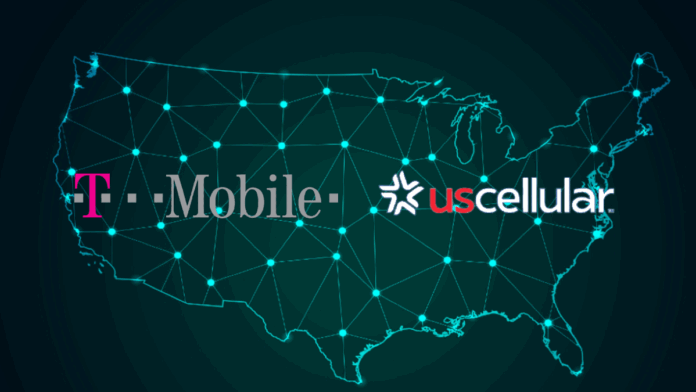A day before receiving the go-ahead, T-Mobile US sent a letter to the FCC promising to end its DEI policies ‘not just in name, but in substance’
The U.S. Department of Justice has cleared T-Mobile US’ $4.4 billion acquisition of UScellular’s wireless business, just a day after T-Mobile announced it was ending its diversity, equity and inclusion (DEI) programs.
The antitrust division acknowledged that its review raised concerns about market competition and spectrum concentration, but ultimately concluded that the deal’s benefits outweighed the potential harm. In a statement, Assistant Attorney General Gail Slater noted that UScellular’s inability to invest at scale had significantly eroded its competitiveness: “UScellular simply could not keep up,” she said, adding that “consumers would benefit from a stronger T-Mobile.”
New Street Research’s Policy Advisor Blair Levin echoed this reality, telling RCR Wireless News that UScellular was no longer competitive. “They were losing subscribers to the big three. Their pricing was higher than the big three — it needed to be because they lacked scale,” he said, adding that the acquisition shouldn’t materially impact underserved or rural communities.
The deal, announced in May 2024, includes most of UScellular’s wireless assets: customers, stores and roughly 30% of its spectrum holdings.
“This review makes clear we stand at a pivotal moment for the wireless industry,” Slater said, pointing to the dominant position of the top three operators, which now control more than 90% of the country’s 335 million mobile subscriptions.
Slater also acknowledged that ongoing spectrum consolidation among the Big Three carriers risks blocking the emergence of a viable fourth national competitor — one that could bring fresh innovation and consumer choice. She pledged that the DOJ would continue to scrutinize future spectrum deals and “use its enforcement authority” if such transactions threaten to undermine competition.
But Levin told RCR that while Dish is still adamant that it can be successful as a fourth carrier “given the opportunity,” his firm remains skeptical. “The path to a successful business is narrow and treacherous,” he said. “The most likely outcome is EchoStar [or Dish] selling spectrum to the big three. We recognize that the DOJ doesn’t want this outcome, but they don’t have jurisdiction over spectrum sales. This is the domain of the FCC, and the FCC is very comfortable with three national carriers.”
A day before receiving the go-ahead, T-Mobile US sent a letter to the FCC promising to end its DEI policies “not just in name, but in substance.” It added: “T-Mobile will no longer have any individual roles or teams focused on DEI” and that it is removing “any references to DEI on its websites and will ensure that company websites and future communications do not have any references to DEI.”
The DOJ’s decision follows a growing trend: Verizon also scrapped its DEI initiatives earlier this year and received the green light for a $20 billion acquisition of Frontier Communications shortly after. Meanwhile, T-Mobile is still seeking approval to separately acquire a 50% stake in fiber provider Metronet via a joint venture with KKR — a deal that Levin said “does nothing for the company strategically.” He continued: “If they determine that they need terrestrial assets, they will need to do something much bigger.”

